THE ONE HEALTH NETWORK
Our Team
Prof. Dr. Damalie NAKANJAKO
Professor
College of Health Sciences
Makerere University
Uganda
Professor Dr. Damalie Nakanjako is a professor of medicine and the principal of the College of Health Sciences at Makerere University (Uganda), as well as the previous dean of the School of Medicine. She has over 22 years’ experience in HIV/AIDS care on different platforms. These include community trials with simple interventions such as safe water and cotrimoxazole prophylaxis to reduce morbidity and mortality among people living with HIV, hospital-based studies on basic tools like provider-initiated HIV testing and routine TB screening to improve access to HIV diagnosis, management of TB-HIV co-infections in hospital settings, epidemiological studies to understand immune recovery in long-term HIV treatment cohorts, and laboratory-based studies in human health (including the “one health” approach to zoonotic infections). Prof. Nakanjako is also the ADAPT principal investigator at the College of Health Sciences, which involves working with the ADAPT member institutions to respond to the emerging challenge of anti-microbial resistance among humans and animals.
Dr. Julius OKUNI
Associate Professor
Veterinary Pharmacy, Clinical and Comparative Medicine
Makerere University
Uganda
Dr. Julius Boniface Okuni is an associate professor of veterinary pathobiology and molecular diagnostics in the Department of Veterinary Pharmacy and Clinical and Comparative Medicine at Makerere University (Uganda). His research interests lie in the diagnosis of infectious and emerging diseases. In the past seven years, Dr. Okuni has worked on the development and validation of diagnostic tests for African swine fever, paratuberculosis, Newcastle disease, tuberculosis, and SARS-CoV-2. As part of the effort to find suitable rapid and accurate diagnostic methods for emerging epidemic diseases, he participated in the validation of the mobile suitcase laboratory for field diagnosis of paratuberculosis and SARS-CoV-2. As part of the ADAPT consortium on anti-microbial resistance, Dr. Okuni is one of the PIs from Uganda who will be following a One Health approach to tackle the challenge of AMR, particularly by focusing on surveillance and hygienic practices in livestock husbandry that reduce the use of antibiotics.
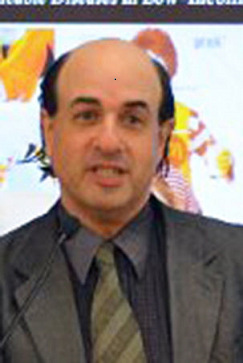
Prof. Dr. Paul KADETZ
Project investigator
Makerere University
Uganda
Prof. Paul Kadetz (PhD, MSN, MPH), a Project investigator at MAK, is a social scientist and clinician who earned his doctorate in International Development at The University of Oxford, and works at the intersections of global health, international development, and medical anthropology, who will assist in the design and delivery of the qualitative aspects of the Project. In addition to research concerning AMR and AMS he has also investigated the impact of foreign state health aid on healthcare systems in Madagascar, healthcare integration in the rural Philippines, and the sociocultural factors impacting chronic malnutrition in Guatemala. Concerning AMR, he served as the PI on a US National Endowment for the Humanities grant identifying the historical factors impacting the current state of AMR in China, and served as a Co-I and the lead on a WP of a MRC (UK) / NSFC (China) four and a half year research grant investigating the sociocultural factors impacting AMR in rural Anhui province, China. He has designed and directed global health programming at post-graduate, undergraduate, and executive education levels at 5 universities in 4 different countries and will be instrumental for designing and implementing Tasks 4 and 6 for which he serves as a Co-Lead.
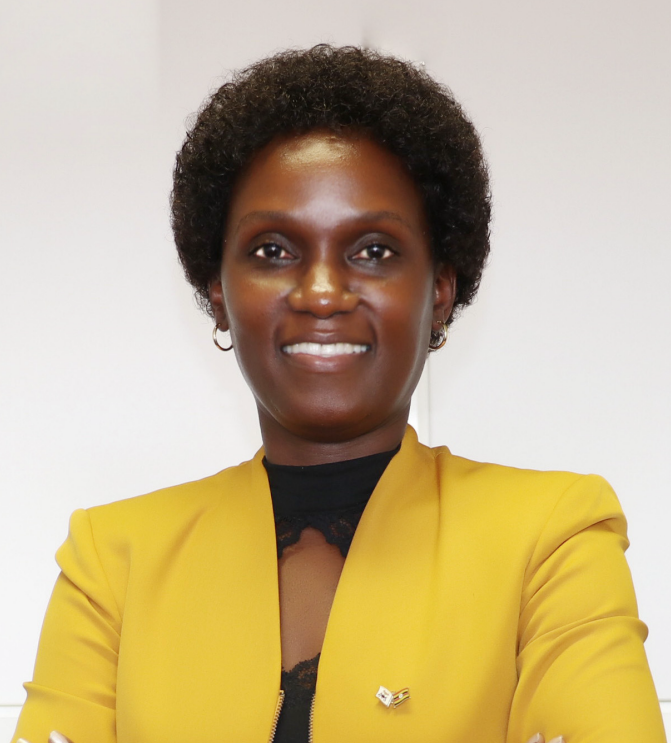
Dr. Josephine NABUKENYA
Associate Professor
Makerere University
Uganda
Dr. Josephine Nabukenya is a Professor of Information Systems and Health Informatics at the School of Computing and Informatics Technology, College of Computing and Information Sciences, Makerere University. She is a Fellow of the International Academy of Health Sciences Informatics of the International Medical Informatics Association. She is a Lead Researcher with over 22 years of substantial experience and expertise in Health Informatics, Digital Health, Information Systems, Data Science and Health Systems research fieldsto solve fundamental health challenges in Uganda, and the region. She was core to the development of Uganda’s Digital Health Policy and Strategy, and supporting its implementation. In the ADAPT project, she is leading the development and operationalisation of “an integrated digital data capture, processing and sharing platform for managing resistance and surveillance of AMR”, and will also support the work on the mobile phone app development and validation in Tasks 1, 2, 4, and 5.
Prof. Dr. Francis EJOBI
Professor
Makerere University
Uganda
Dr. Francis Ejobi (PhD), a Veterinarian and Professor of Veterinary Public Health and Epidemiology at MAK. He is also the co-founder and Executive Secretary of Veterinarians Without Border – Uganda (VSF-U), an international, non-governmental organisation registered in Uganda. He earned his Ph.D. in 1999 from the University of Saarland, Saarbrucken, Germany. He is currently a member of the Senate and Academic Policies and Appeals Committee of Makerere University. He served for 10 years (2006 to 2016) as Head of the Department of Biosecurity, Ecosystems, and Veterinary Public Health, Makerere University. His current research interests include AMR and epidemiology of zoonoses. He has won many competitive research grants and consultancies from international and national (Uganda) organisations, including from FAO, the WHO, UNDP, IDRC, IAEA, EU, the World Bank, Caritas Kotido Catholic Diocese, and Caritas Moroto Catholic Diocese. Dr. Ejobi will join the research teams of Task 5.
Dr. Yakhya DIEYE
Researcher
Pole of Microbiology
Institut Pasteur de Dakar
Senegal
Dr. Yakhya Dieye obtained his Ph.D. at Université Paris-Sud (France) in 2002. He has held post-doctoral positions in the USA, including at Ohio State University and Arizona State University. Dr Dieye also worked as a senior scientist at the Australian start-up Ondek Pty Ltd from 2009 to 2013. After that, he held a position as a visiting senior research fellow at the University of Malaya (Kuala Lumpur, Malaysia) before returning to his native country of Senegal in 2015. Dr Dieye is currently a faculty member at Université Cheikh Anta Diop and the head of the Pole of Microbiology at the Institut Pasteur de Dakar. His main expertise is in bacterial genetics and molecular biology, and his research interests include antimicrobial resistance, bacterial genomics, bacterial pathogenesis, and the impact of the microbiota on infectious diseases. Dr Dieye is currently teaching courses on molecular biology, microbiology, and genetics.

Dr. Cheikh LOUCOUBAR
Head of Epidemiology
Institut Pasteur de Dakar
Senegal
Dr. Cheikh Loucoubar has obtained his PhD in Statistical Genetics from Université Paris Descartes, France. He has two master degrees in applied Mathematics, Statistics, Computer Science. He is heading the Epidemiology, Clinical Research & Data Science at IPD. He will support ADAPT in the statistical analysis of the research WP.
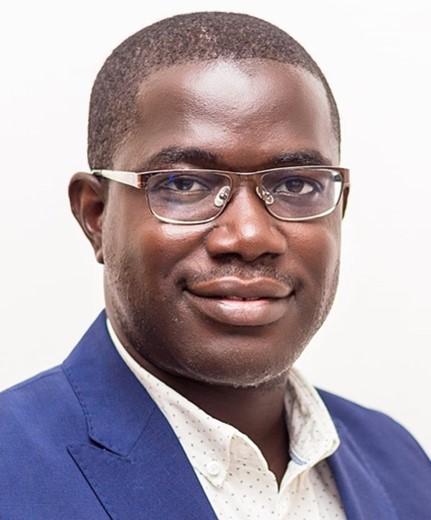
Dr. Michael FRIMPONG
Senior Research Fellow
Kumasi Centre for Collaborative Research in Tropical Medicine
Ghana
Dr. Michael Frimpong is a Senior Research Fellow at KCCR, and a lecturer at Kwame Nkrumah University of Science and Technology (KNUST) where he leads a team of young scientists in developing and implementing novel and innovative diagnostic tests for detecting NTDs in resource limited settings. He holds a PhD in Immunology from the KNUST and a Postgraduate Certificate in Molecular diagnostics from the Ludwig-Maximilians University, Munich. Since 2014, he has contributed considerably to the understanding and development of new diagnostic tools and treatment for NTDs, with over 30 peer reviewed articles on the topic in high impact journals. In 2017, Michael received a EDCTP career development fellowship award. Dr. Frimpong will be the Lead for the development of novel diagnostics of AMR in Task 3.

Prof. Richard PHILLIPS
Professor
Kumasi Centre for Collaborative Research in Tropical Medicine
Ghana
Professor Richard Phillips has contributed considerably to the understanding of mycobacteria that affect the skin, and led the WHO study for development of antibiotic treatment for Buruli ulcers. He is Vice Chair for the high Ghanan Intracountry Coordinating Committee for NTDs, as well as a member of the 4-member committee providing oversight for COVID-19 testing in Ghana. He is a recipient of several awards including the EDCTP Senior Fellowship, the WHO/TDR, the MRC Africa Research leader, and the EU FP7 Cooperation Collaborative Project, among others. He is passionate about capacity building that aims to leave behind a legacy of world class researchers that are able to address pressing research questions concerning health across Africa. Professor Phillips will support the dissemination plan of the Project and strengthen the communication with policy makers.
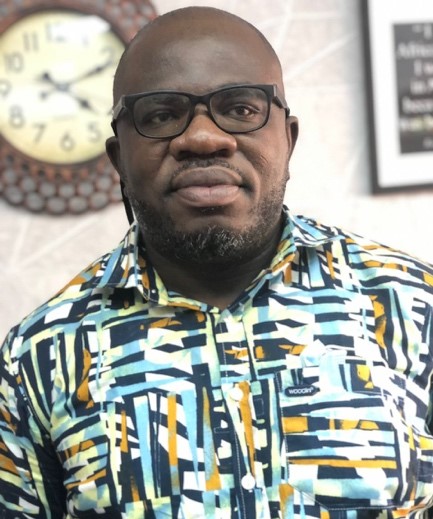
Dr. Yaw Ampem AMOAKO
Research assistant
Kumasi Centre for Collaborative Research in Tropical Medicine
Ghana
Dr. Yaw A. Amoako is a Senior Lecturer at the School of Medicine and Dentistry of the KNUST, and a Senior Specialist Infectious Disease Physician and Research Fellow at KCCR. He is the lead clinician for the KCCR network and will play a key role in Task 3 for the development of novel diagnostics.
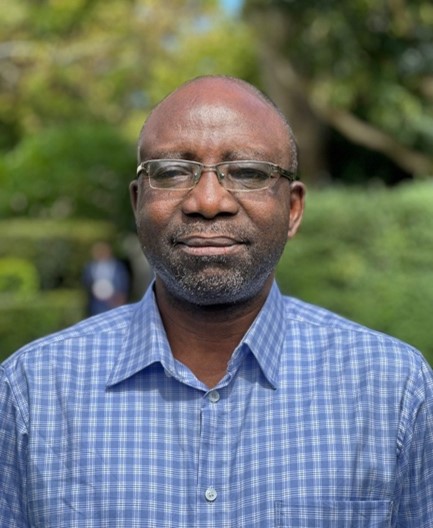
Prof. Dr. George ADEMOWO
Professor
Institute for Advanced Medical Research and Training
University of Ibadan
Nigeria
Professor Dr. Olusegun George Ademowo has a PhD in Pharmacology & Therapeutics from UI. He was promoted to Professor of Pharmacology & Therapeutics in 2005. He is Head of the Drug and Genetic Research unit in IAMRAT where he leads multidisciplinary research teams. His research centres on pathogenesis and diagnosis of infectious diseases. He is visiting Professor/Research Scientist to several institutions within and outside Africa. He has won several fellowships and awards including the Alexander von Humboldt Fellowship, and the Volkswagen scholarship, and is a Fellow Royal Society of Tropical Medicine, England, and the American Society for Tropical Medicine and Hygiene among others. He has received research funding from the World Health Organisation and European Commission. He will lead Task 2 to elucidate the relationship between helminths and drug resistant bacteria.
Dr. Aderemi KEHINDE
Head of the National AMR Reference Laboratory
University of Ibadan
Nigeria
Dr. Aderemi Kehinde is a medical microbiologist with a particular interest in the diagnosis and pathological effects of AMR. He heads the National AMR Reference Laboratory at the University College Hospital, Ibadan. He will be in charge of reporting of AMR to the Nigerian National Surveillance program. He will provide training and technical support of the teams in Tasks 1 and 2.
Dr. Solomon BAKAREY
Veterinary virologist
University of Ibadan
Nigeria
Dr. Solomon Bakarey is a Veterinary virologist who specialises in the molecular diagnosis of pathogens, isolation, and characterisation. He will conduct research activities in Tasks 1 and 2.
Dr. Olufunke OLUWATOBA
Parasitologist
University of Ibadan
Nigeria
Dr. Olufunke Oluwatoba is a parasitologist who primarily conducts research in phenotypic epidemiology and genomic surveillance of soil transmitted helminths. She will be in charge of the diagnostic lab of helminths at UI and is one of the team members of Tasks 1 and 2.
Dr. Victoria ADETUNJI
veterinary public health specialist
University of Ibadan
Nigeria
Dr. Victoria Adetunji is a veterinary public health specialist. She specializes in AMR in farm animals, especially poultry and is one of the team members of Tasks 1 and 2.
Prof. Dr. Sheila MAKIALA
Head of Clinical Virology Unit
Virology
Institute National Research Biomedical (INRB)
Democratic Republic of the Congo
Professor Dr. Sheila Makiala Mandanda is a medical biologist with a Ph.D. in tropical infectious disease from the University of Sciences in Libreville, Gabon. She completed her post-doctoral studies in zoonotic disease control at Hokkaido University, Japan. She is also responsible for the clinical laboratory at the INRB and works as an assistant professor in the University of Kinshasa’s Faculty of Medicine (DRC). Prof. Makiala has experience in coordinating field diagnoses during epidemics, and she is currently involved in several research projects involving both local and international research institutions. Her research interests include tropical infectious diseases, emerging and re-emerging diseases of public health concern, zoonosis control, and laboratory management. Prof. Makiala has also gained extensive experience in the serological and molecular diagnosis of viral diseases such as HIV, hepatitis, haemorrhagic fevers, yellow fever, dengue, Chikungunya, Rift valley fever, Zika, and herpes.
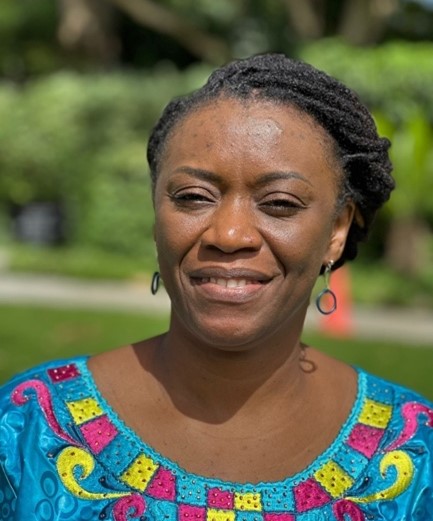

Prof. Dr. Octavie LUNGUYAL
Professor
Institute National Research Biomedical (INRB)
Democratic Republic of the Congo
Professor Dr. Octavie LunguyaI is a clinical microbiologist with skills in laboratory diagnosis of infectious agents, such as bacteria, fungi, and drug susceptibility testing for antibiotic resistance of bacteria. She obtained a PhD in Microbiology from Katholieke Universiteit Leuven, Belgium, and is currently the head of the Department of Microbiology at the INRB. She participated in the surveillance and investigation of epidemics in the DRC, such as the outbreak of klebsiella pneumoniae infection in newborns, outbreak of sepsis in dialysis patient Nephrology Service at the Kinshasa University Hospital, and typhoid and non-typhoid outbreaks in DRC provinces. She is running the surveillance network of bloodstream infections in the DRC and will provide AMR lab facilities and training for Task 1 and 2.
Dr. Yimtubeznash Woldeamanuel MULATE
Associate Professor of Medical Microbiology
Microbiology, Immunology and Parasitology
Addis Ababa University
Ethiopia
Dr. Yimtubezinash Woldeamanuel Mulate, Associate Professor and consultant medical specialist in Medical Microbiology, is the Lead of the incubation hub of the CDT-Africa, Addis Ababa University. She has worked on numerous Projects as a researcher, advisor of postgraduate students, and a mentor for over 20 years. The majority of her work is concerned with medical microbiology and infectious diseases, with a specific focus on AMR and hospital-acquired infections. She has served on the Infection and Control committee of the Hospital for many years and has led trainings on AMR and AMS. She has conducted several collaborative Projects including the “Health care associated infections in Tikur Anbessa Hospital, TAH” Project with a grant from SIDA/MSB as a Country-PI. Her research has provided much needed information about the burden of AMR in different patient populations and settings in Ethiopia. She will lead the AMS in Task 6, as well as the capacity building work package. In addition, she will provide training on ethics and good scientific practice.
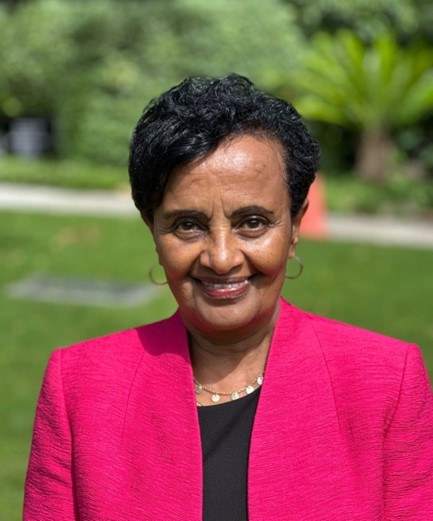
Prof. Eyassu MAKONNEN
Professor
Addis Ababa University
Ethiopia

Dr. Mohamed MUKHTAR
Associate Professor
University of Khartoum
Sudan
Dr. Mohamed Mukhtar obtained PhD in Agricultural Extension and Rural Development, from Faculty of Agriculture, UofK. He is an expert in statistics with many publications in that field. He is currently Associate Professor of Rural Extension in UofK and will support ADAPT in statistician analysis related to the animal science in tasks 1 & 5.
Dr. Kamal ELTOM
Associate Professor
Institute for Studies and Promotion of Animal Exports, Department of Animal
Health and Safety of Animal Products | University of Khartoum
Sudan
Dr. Kamal Eltom was born in 1969 in the Sudan. He obtained BVSc (1994) and MVSc (2000) degrees from the University of Khartoum (Sudan) and a Ph.D. (2007) from the University of Goettingen (Germany). He joined the University of Khartoum’s Vet. Teaching Hospital as house surgeon in 1995 and went on to become a teaching assistant at the university’s Institute for Promotion of Animal Exports in 2000. Dr. Eltom is currently an associate professor and an active researcher with 26 research articles in peer-reviewed journals, including on animal health, bacteriology, virology, molecular biology, and AMR. He has organised successful regional workshops in Africa and received scholarships and research grants from the University of Khartoum (MHE), the DAAD, IBT (Goettingen), Goettingen International, VW, the DFG, EDCTP, BRCCH, and the BMBF. Dr. Eltom has also supervised many master’s and Ph.D. students. Currently, he is a member of the Experts Board of the Sudan One Health Platform and the Africa One Health Network for Disease Prevention.
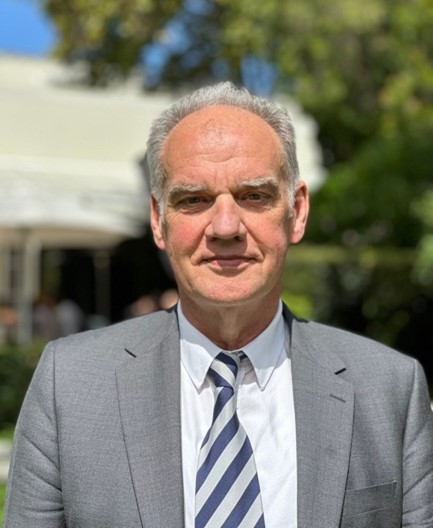
Prof. Dr Uwe TRUYEN
Director
Institute for Animal Hygiene and Veterinary Public Health
Leipzig University
Germany
After studying veterinary medicine in Germany (1981–1986), Prof. Truyen did his post-doctoral studies in Hanover and Munich and studied as a post-doctoral fellow in Colin Parrish’s lab at the Baker Institute of Cornell University (USA). He is currently a professor of animal hygiene and epidemic disease control in the Veterinary Faculty of Leipzig University and the director of the Institute for Animal Hygiene and Veterinary Public Health. He is also a chairman of the standing veterinary vaccine committee of Germany and of the scientific advisory board of the German Federal Institute for Risk Assessment (BfR). Among other subjects, Prof. Truyen has been working on the molecular epidemiology of animal parvoviruses and caliciviruses, hygiene management in animal husbandry, anti-microbial resistance, the inactivation of airborne viruses and bacteria, animal vaccination, and one-health and global health concepts.

Dr. Ahmed ABD EL WAHED
Lab Head
Institute of Animal Hygiene and Veterinary Public Health
Leipzig University
Germany
Dr. Ahmed Abd El Wahed studied veterinary medicine at Mansoura University, Egypt. He received his Ph.D. in biology from the University of Goettingen (Germany) in 2011. He is currently the head of the laboratory at the Institute of Animal Hygiene and Veterinary Public Health (Leipzig University, Germany). In addition, Dr Abd El Wahed is a member of the German Alliance for Global Health Research; the German Society for Tropical Medicine, Travel Medicine and Global Health (DTG e.V.); the nomination committee of the American Society of Tropical Medicine and Hygiene (ASTMH); and the WHO’s strategic and technical advisory board on neglected tropical diseases. He is also one of founders of the Network for Young Researchers in Medical Infectious Diseases (Netzwerk Junge Infektionsmedizin).
Dr. Abd El Wahed has established a mobile suitcase laboratory for the rapid detection of viruses, bacteria, and parasites. His model has been deployed in several African and Asian countries.
Dr. Rea KOBIALKA
Researcher
Institute of Animal Hygiene and Veterinary Public Health
Leipzig University
Germany
Dr. Rea Kobialka is a post-doctoral researcher at the Institute of Animal Hygiene and Veterinary Public Health in Leipzig. As part of the Leipzig-Team she is involved in project coordination and monitoring as well as direct training of young researchers in working with the suitcase lab and sequencing.
Dr. Kobialka finished her studies in veterinary medicine at the Ludwig-Maximillians University in Munich in 2020. She holds a doctors degree from Leipzig University, where she specialized in rapid molecular diagnostics. She is a member of the American Society of Tropical Medicine and Hygiene (ASTMH), Deutsche Gesellschaft für Tropenmedizin, Reisemedizin und Globale Gesundheit e.V. (DGT) and was involved in different projects such as suitcase-lab based monitoring of leishmaniasis in India and a multi-country study to evaluate the suitcase lab for rapid detection of SARS-CoV-2. Furthermore, she is part of different projects using Nanopore sequencing technology.

Prakash GHOSH
Research Associate
Institute of Animal Hygiene and Veterinary Public Health
Leipzig University
Germany
As a postgraduate in Biochemistry and Molecular Biology, Prakash Ghosh has been involved in clinical research for more than a decade. His immense interest in infectious diseases led him to get involved in clinical research towards developing and implementing interventions for NTDs. To date he has made significant contributions in the field of leishmania research. With his research knowledge and aptitude, he has won several competitive grants. In addition, he has been awarded several fellowships to advance his research credentials. Notably, he achieved the WHO-TDR CRDF grant to pursue his training on vaccine adjuvant formulations at IDRI, Seattle for 12 months and Pasteur Fellowship to complete Diploma in Vaccinology at Pasteur Institute, Paris.
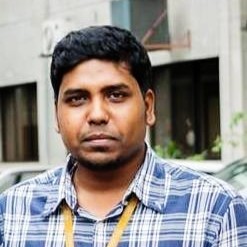
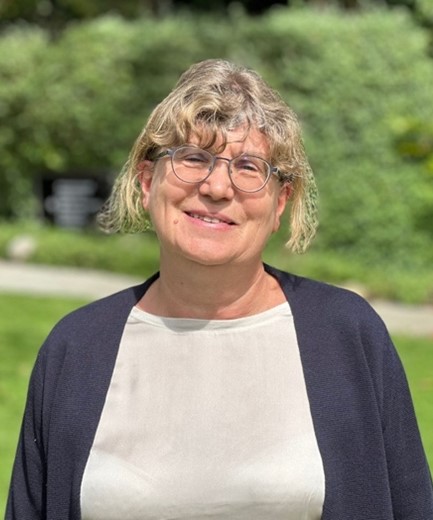
Prof. Dr. Annemarie Käsbohrer
Head of Unit
Biological Safety
German Federal Institute for Risk Assessment
Germany
Prof. Annemarie Käsbohrer is the head of the National Reference Laboratory for Antimicrobial Resistance at the German Federal Institute for Risk Assessment and a professor of epidemiology at the University for Veterinary Medicine in Vienna, Austria. She is a veterinarian and national specialist (Fachtierarzt) in microbiology and holds an M.Sc. in epidemiology, along with a diploma from the European College for Veterinary Public Health. Prof Käsbohrer’s research interests include epidemiology and risk assessment, as well as molecular epidemiology.
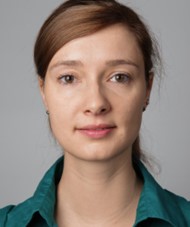
Dr. Ulrike BINSKER
Researcher
German Federal Institute for Risk Assessment
Germany
Dr. Binsker studied Biochemistry and obtained a PhD in Microbiology and Infection Biology from the University of Greifswald, Germany, followed by a two-year postdoctoral research fellowship at the New York University, USA. Currently, she is a post-doctoral researcher in the unit Epidemiology, Zoonoses and Antimicrobial Resistance at the German Federal Institute for Risk Assessment. Her research interest include the investigation of the mechanisms of antibiotic-resistant bacteria, which includes the phenotypic and genotypic characterization of animal and human pathogens.

Mariel Stefhanie AYBAR ESPINOZA
Researcher
German Federal Institute for Risk Assessment
Germany
Mariel S. Aybar Espinoza is a researcher at the German Federal Institute for Risk Assessment. She is a veterinarian, holds a MSc. in Veterinary Public Health from the University of Glasgow, United Kingdom and a specialization in evidence-based decision making in food safety risk assessment from Ghent University, Belgium. With over 10 years of experience working at national food safety authorities and health institutions of low-income and high-income countries, her research interests include multi-sectoral One Health initiatives, antimicrobial resistance and risk analysis of zoonoses.

Laura WESSELS
Researcher
German Federal Institute for Risk Assessment
Germany
Laura is a researcher at the German Federal Institute for Risk Assessment (BfR) working in food safety and food security. Laura holds a Bachelor and Master degree in Water Science from the University of Duisburg-Essen in Germany. Her research interest lies in the field of food microbiology, antimicrobial resistances and food security.
